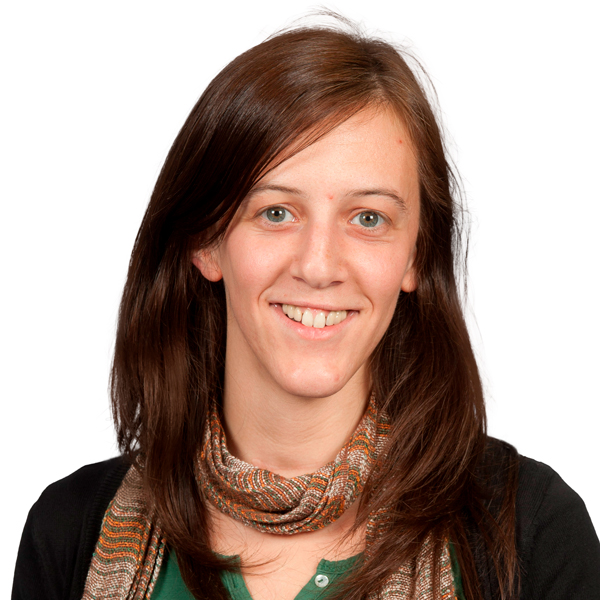Seven activities to celebrate International Open Access Week
Subject: Multidisciplinary
The UOC works to ensure that knowledge is open to everyone, for maximum impact, and that it enables progress towards sustainable development.
International Open Access Week is taking place from 25 to 31 October, with the theme "How we open knowledge matters: building structural equity".
We are taking advantage of this annual event at the UOC to raise awareness of the benefits of open knowledge and how to apply our new open knowledge policy.
Seven plans for seven days
Discover the institutional open knowledge policy
This infographic explains in separate sections the 'what', the 'who' and the 'how' in relation to how to open up the knowledge contained in academic publications, research data, doctoral theses, other research results, learning resources, student publications, and the University's own documents.
Share open knowledge with this decision tree
An interactive tour to assist you in the process of sharing the knowledge you've produced as a result of your research, teaching, innovation or institutional administration work. It helps you to understand the steps you have to take by simply clicking on the answers on each page to continue with the process or obtain more information.
Find new reading online free of charge
The UOC is taking part in the "Open your book to the world" campaign, organized by the Spanish university publishers and libraries working group of the Unión de Editoriales Universitarias Españolas (UNE, Union of Spanish University Publishers) and the Red de Bibliotecas Universitarias Españolas (REBIUN, Network of Spanish University Libraries), with the book Decálogo para la mejora de la docencia online. Propuestas para educar en contextos presenciales discontinuos.
International Open Access Week will see the sharing of books by participating institutions in this section and on social media under the tag #AbreTuLibro. A great opportunity for finding something new to read!
Two events for reflecting on open knowledge
- Round table about open data and COVID-19
On Tuesday 26, at 4 p.m., the UOC will be conducting an online discussion about how the open data shared by the Government of Catalonia facilitated the communication of what was happening in relation to the pandemic in real time, helping people to explain its evolution, and enabling both the administration and the public to make better informed decisions.
In this round table will participate Pastora Martínez, Alexandre López-Borrull, researcher at the Learning, Media and Entertainment (GAME) group, from the Faculty of Information and Communication Sciences; and Lídia Arroyo, Gender and ICT (GenTIC) researcher, from the Internet Interdisciplinary Institute (IN3).
The University will be holding an internal seminar 3 p.m. to 4.30 p.m. (CET) on Wednesday 27 October to raise awareness of open knowledge. The aim of the session is to debunk a number of myths, such as that publishing open-access content is more expensive, that it doesn't count towards your academic career, that it could result in your data being stolen or that its proper use cannot be guaranteed.
The seminar, which is entitled Open Knowledge: Debunking Myths, will feature Pastora Martínez Samper; Juliana Elisa Raffaghelli from the Education and ICT research group (EDUL@B) of the Faculty of Psychology and Education Sciences; Diego Redolar from the Cognitive Neurolab group of the Faculty of Health Sciences; and Rosa Padrós from the Library for Research.
Become a volunteer to make technology speak Catalan
In the framework of this International Open Access Week, the UOC is also calling for volunteers to add their voices in Catalan to create open knowledge for AI- and language technology-based applications such as voice assistants, machine translation engines or chatbots.
Volunteers can take part through the Common Voice website, where they can read out sentences in Catalan or confirm those recorded by others. For more information, see this news report.
Take a look at the most frequently consulted documents in the UOC O2 Repository
Through its institutional repository, O2, the UOC makes more than 15,000 documents available to everyone, free and online. For example, 2,123 scientific articles, 166 doctoral theses, 9,512 final degree projects, 1,659 open access learning resources and 82 books from Editorial UOC can be consulted.
The last academic year saw 220,763 documents downloaded from the repository, including content related to remote teaching and degree final projects by the university community. The documents that headed the ranking of downloads from the repository in 2020 were:
- Book: Decálogo para la mejora de la docencia online. Propuestas para educar en contextos presenciales discontinuos, produced by twelve experts at the UOC.
- Final project: Nutrición y salud en la dieta vegana, by María Josefa Andreu Ivorra on the University Master's Degree in Nutrition and Health.
- Computer graphics: ¿Qué se entiende por metodología docente?, by the eLearn Center at the UOC.
- Final project: Impacto sobre la salud de las emisiones electromagnéticas: radares y tecnología 5G, by Miguel Ángel Romero Fernández-Bravo, on the University Master's Degree in Telecommunications Engineering.
- Final project: Ayuno intermitente: revisión bibliográfica sobre su efecto en la salud cardiometabólica y en la pérdida de peso, by Patricia del Pilar Martínez Pina, also on the University Master's Degree in Nutrition and Health.
Read the latest articles in the UOC's academic journals
All the journals have two things in common: a convergence between the social sciences and technology, and the publication of open access content. They address issues including law and political science, communication, art and design and teaching from a digital perspective.
Over the course of this annual open access event, the University's social media platforms will be sharing content to raise awareness of the advantages of opening up knowledge for all. Look out for the #openUOC tag to keep up to date.



